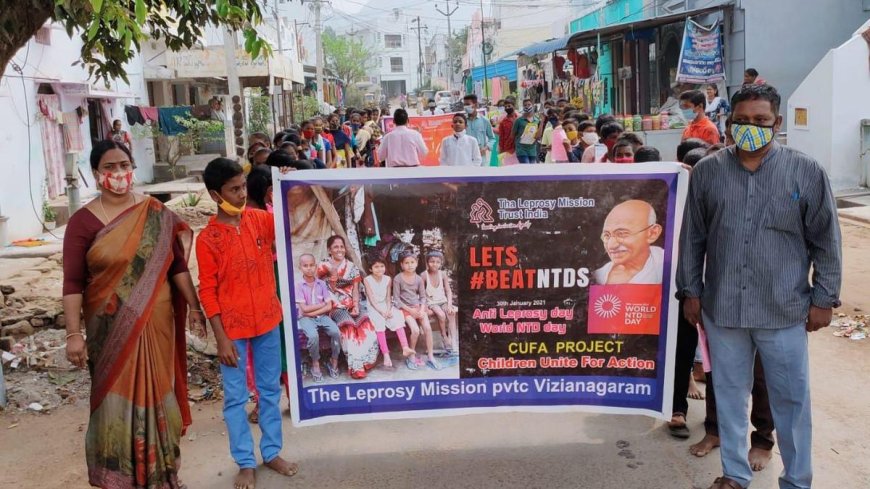The link between leprosy and climate-change that we did not know about: an Indian story

The Link Between Leprosy and Climate Change That We Did Not Know About: An Indian Story
Breaking News, Daily Updates & Exclusive Stories - asarkari
India achieved a significant milestone around two decades ago by eliminating leprosy as a public health concern. This success has been celebrated globally, yet emerging research reveals an alarming possibility: climate change, coupled with poverty, could reignite the battle against this ancient disease. In light of these insights, it is crucial to explore the connection between leprosy, environmental stress, and societal challenges in contemporary India.
Understanding Leprosy: A Brief Overview
Leprosy, also known as Hansen's disease, is caused by the bacterium Mycobacterium leprae. It primarily affects the skin and peripheral nerves, leading to debilitating effects if left untreated. With effective multidrug therapy, India saw a dramatic decline in leprosy cases, enabling the nation to declare elimination in 2005. However, experts are now raising concerns regarding its potential resurgence due to various global changes.
The Consequences of Climate Change
Climate change has far-reaching effects on public health, particularly in developing nations like India. Rising temperatures and erratic rainfall patterns pose threats not only to agricultural productivity but also to the overall health of populations. For individuals already living in impoverished conditions, the effects can be devastating; malnutrition, limited access to healthcare, and weakened immune systems foster environments where diseases like leprosy could re-emerge.
The Interconnection of Poverty and Health
Years of progress in leprosy elimination may be undone by the vicious cycle of poverty exacerbated by climate change. Many communities in India struggle to access clean water, nutritious food, and adequate medical facilities. The scarcity of resources means that even mild infections can escalate into serious health concerns, inviting the possibility of leprosy’s resurgence. When combined with increased vulnerability due to climate-induced stressors, marginalized populations become particularly at risk.
Research Findings and Health Implications
Recent studies indicate that rising temperatures may directly influence the transmission dynamics of disease-causing pathogens. The stress inflicted by climate change could facilitate the survival of bacteria, including those responsible for leprosy. One proposed theory suggests that as mosquitoes thrive in warmer climates, they may unwittingly assist in the spread of infectious diseases, raising discomforting questions about the future of public health in India. Continuous monitoring and updated health programs will be critical in this scenario.
Addressing the Challenges Head-On
To counter these potentially regressive trends, there is an urgent need for a multi-faceted approach. This includes enhancing healthcare infrastructure, improving access to education about communicable diseases, and adopting sustainable practices that address climate change. Collaboration between government agencies, NGOs, and local communities will be essential in mitigating the effects of climate stress while safeguarding public health.
Conclusion: A Call to Action
As we reflect on India’s remarkable triumph over leprosy two decades ago, it is now imperative that we remain vigilant in addressing the contemporary challenges posed by climate change and poverty. The reappearance of diseases such as leprosy symbolizes the complexities of a changing world; thus, an integrated approach combining healthcare, environmental stewardship, and poverty alleviation is crucial for ensuring that past achievements are not lost. For more updates, visit asarkari.com.
Keywords:
leprosy, climate change, India, public health, poverty, Hansen's disease, Mycobacterium leprae, sustainable practices, healthcare infrastructure, disease resurgenceWhat's Your Reaction?
 Like
0
Like
0
 Dislike
0
Dislike
0
 Love
0
Love
0
 Funny
0
Funny
0
 Angry
0
Angry
0
 Sad
0
Sad
0
 Wow
0
Wow
0










































